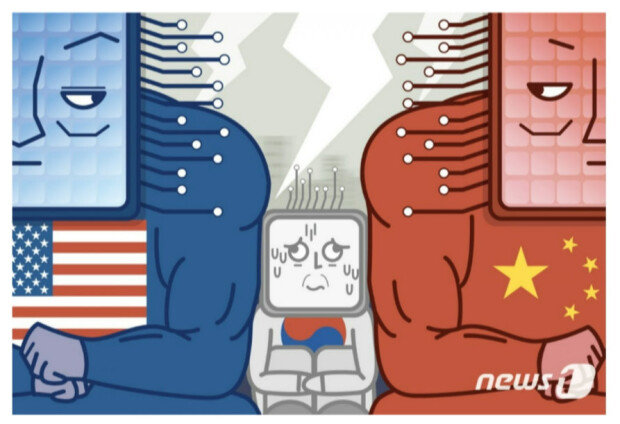Washington puts pressure on Seoul to join chips regulations on Beijing
Washington puts pressure on Seoul to join chips regulations on Beijing
Posted September. 12, 2024 08:33,
Updated September. 12, 2024 08:33

A high-ranking U.S. commerce department official in charge of semiconductor export control to China said that high-bandwidth memory (HBM) solutions produced by South Korean makers should be supplied to the United States and its allies, not to China. HBM is a key component for running AI semiconductors.
U.S. Under Secretary of Commerce for Industry and Security Alan Estevez said at the Korea-U.S. Economic Security Conference organized by the South Korean Ministry of Trade, Industry, and Energy in Washington on Tuesday (local time) that it matters to join forces among like-minded countries so cutting-edge solutions will not be used (by China and others) to threaten the security of the United States and its allies, adding that two of the only three HBM makers in the world are South Korean manufacturers (Samsung Electronics and SK hynix). He stressed that it is important to improve and capitalize on such capabilities in the interest of the KORUS alliance, implying that Washington works to figure out what action should be taken to prevent China from increasing its presence in related fields.
Last Thursday, the U.S. Department of Commerce Bureau of Industry and Security announced export controls on 24 goods, including quantum computing solutions for military use, Gate-All-Around (GAA) structures essential to advanced chips, and 3D printing technologies used for metal parts production. Whereas it allowed such technologies to be exported to Japan, Germany, and other countries without a federal permit, South Korea was only given conditional approval that demanded the submission of an application. Experts say that the U.S. government may want Seoul to impose tighter export control on China.
이기욱 기자 71wook@donga.com
Headline News
- Joint investigation headquarters asks Yoon to appear at the investigation office
- KDIC colonel: Cable ties and hoods to control NEC staff were prepared
- Results of real estate development diverged by accessibility to Gangnam
- New budget proposal reflecting Trump’s demand rejected
- Son Heung-min scores winning corner kick







